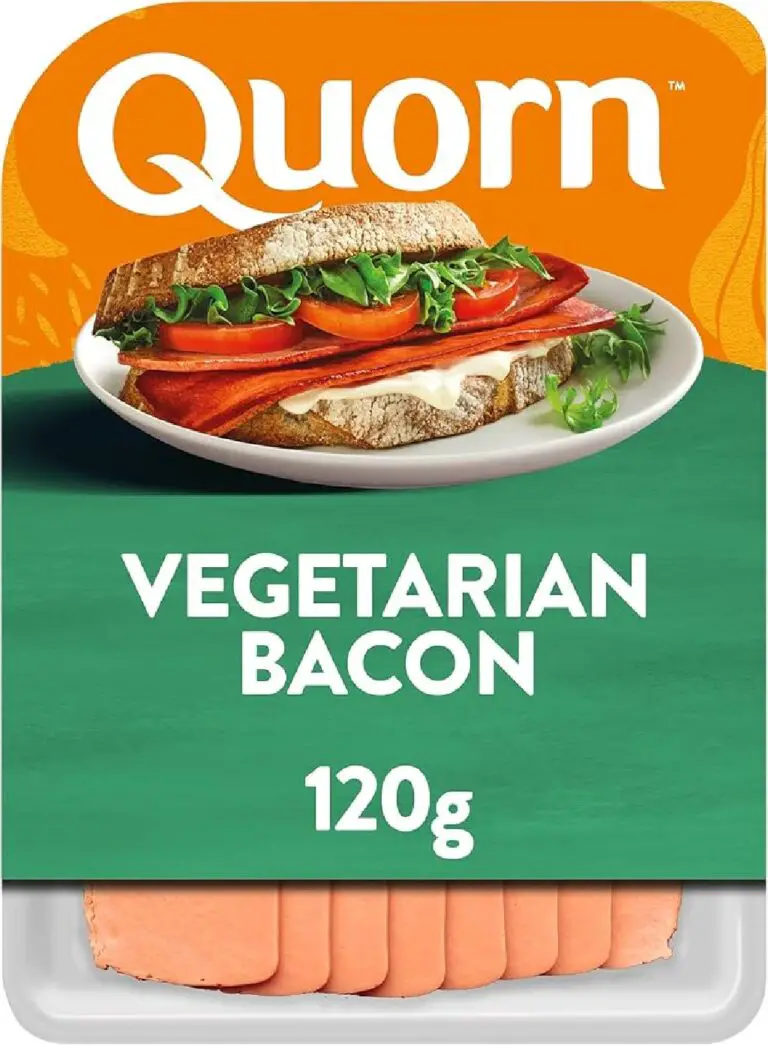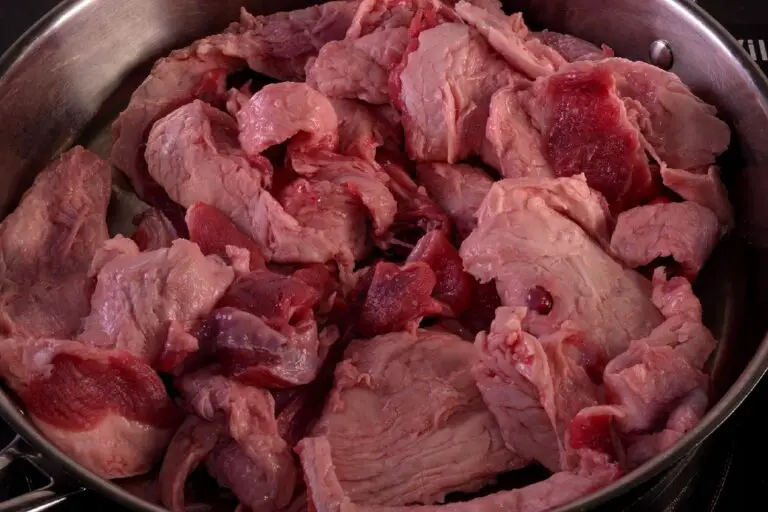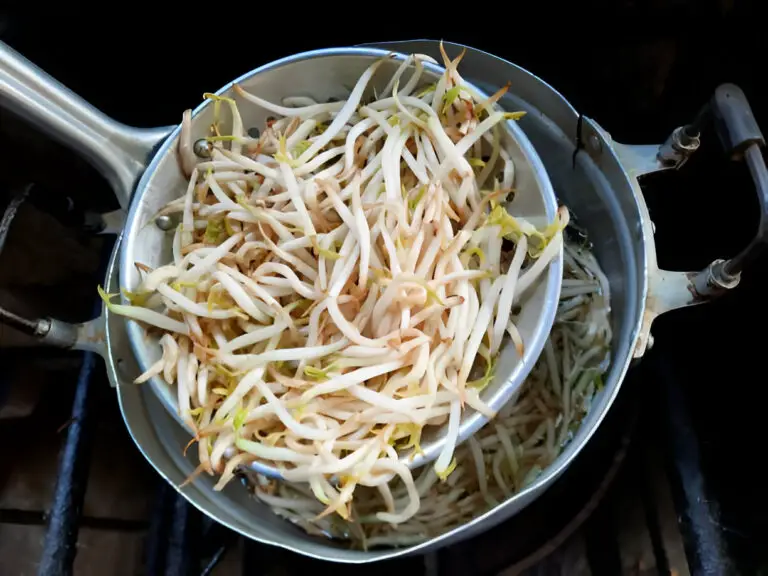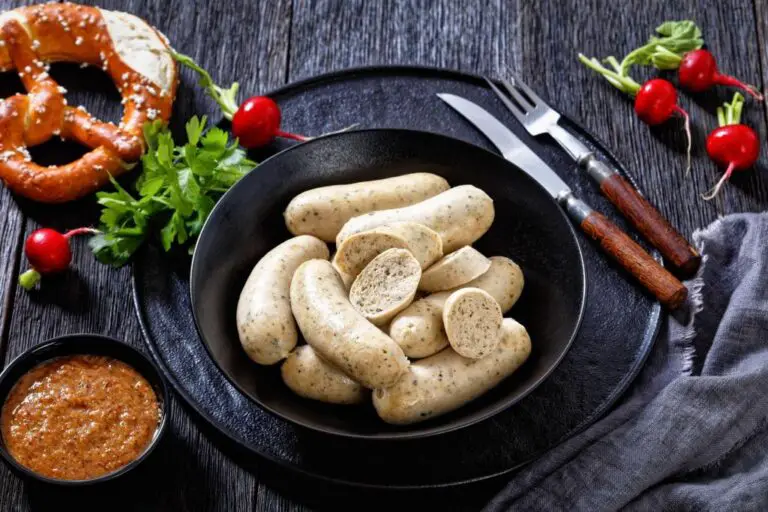Is Spicy Food Good for Cold and Cough? (What to Eat When You’re Sick)

When you’re sick with a cold or cough, the last thing you probably want to do is eat spicy food. But did you know that spicy food might actually be good for you when you’re under the weather?
In this blog post, we’ll explore the benefits of eating spicy food when you have a cold or cough. We will break down the reasons why and how it can help, so read on if you want to find out more about how spicy food can help your cold and cough.
So, grab a tissue and a bottle of water, and let’s dive in to see if spicy food is the secret ingredient to helping you feel better faster.
What Is Spicy Food?
Spicy food is a type of cuisine that is characterized by the use of spices or herbs that give it a pungent or hot flavor. Spicy food can be found in many different cuisines around the world, including Indian, Mexican, and Thai.
Spicy food can be made with many spices and herbs, depending on the recipe and the cook’s preferences. Some common spices used in spicy food include chili peppers, black pepper, cumin, and ginger.
The heat or spiciness of a dish is often measured on the Scoville scale, which is a measurement of the concentration of capsaicin, the compound that gives chili peppers their heat. The scale ranges from 0 (no heat) to 2 million (extremely hot).
Spicy food can be enjoyed in a variety of ways, such as adding hot sauce or chili peppers to a dish, or by eating a meal from a cuisine that is known for its spicy flavors. It can also be enjoyed as part of a spicy food challenge, where people compete to see who can eat the spiciest dish.
Cold and Cough Symptoms

Cold and cough symptoms are common respiratory symptoms that can be caused by a variety of viral infections. Cold symptoms can include a runny or stuffy nose, sneezing, coughing, and a sore throat. Some people may also experience fatigue, muscle aches, and a low-grade fever. Cough symptoms can vary in intensity and may be dry or produce phlegm.
Most colds and coughs go away on their own, but you can get medicine over-the-counter or with a prescription to help ease the symptoms. When you have a stuffy nose, decongestants and nasal sprays can help. When you have a cough, cough suppressants and expectorants can help.
Good hygiene is important to stop the spread of viruses that cause colds and coughs. This means you should wash your hands often, stay away from sick people, and cover your mouth and nose when you sneeze or cough.
| If your symptoms persist for more than a week or are severe, it’s a good idea to consult with a healthcare provider. In some cases, a cold or cough can be a sign of a more serious underlying condition, such as pneumonia or bronchitis. |
Is Spicy Food Good for Cold and Cough?
Spicy food can be beneficial for those suffering from the common cold and cough. Adding a little spice to your diet has many health benefits that can help ease the symptoms of these common illnesses.
When we eat spicy foods, they can make our noses run and our eyes water, which can help to clear out congestion in our sinuses. The heat from the spices can also help to loosen up mucus and make it easier to blow your nose.
It is a great way to improve your overall health, and it can also help you feel better when you have a cold or cough.
The benefits of spicy food for cold and cough
- Clears congestion. The heat and steam from spicy food can help to open up the nasal passages and reduce congestion. Capsaicin, which is found in spicy foods like cayenne pepper and chili flakes, can help clear up congestion and thin mucus.
- Reduces inflammation. Many spices, such as turmeric and ginger, have anti-inflammatory properties and can help to reduce swelling and irritation in the nasal passages and throat.
- Boosts immune system. Some spices, such as garlic and onion, contain compounds that can help to boost the immune system and fight off illness. Consuming spicy food may also stimulate the production of antibodies and white blood cells, which can help the body defend itself against infection.
- Alleviates sore throat. The heat and spiciness of certain foods can help to numb the pain and irritation of a sore throat. Soothing drinks, such as spicy tea or chicken noodle soup with chili flakes, can be particularly helpful in relieving a sore throat.
- Prevent throat irritation. Spicy food can stimulate the production of saliva and mucus, which can help to keep the throat moist and prevent further irritation.
What Spicy Food Is Good for a Cold?
When you have congestion, you might feel better if you eat chili peppers, wasabi, or horseradish. These spices contain compounds that can help to reduce inflammation and improve circulation, which can help to cleart the sinuses.
There are many ways to incorporate spicy foods into your diet when you have a cold. For example, you could try making a spicy soup or stew with chili peppers or adding some wasabi to your sushi. You could also mix some horseradish into your mashed potatoes or try making a spicy sauce for your chicken or fish.
It’s important to remember that spicy foods may not be good for everyone, especially if you have a sensitive stomach or often get heartburn. If you are unsure whether spicy foods are right for you, it is always a good idea to speak with a healthcare provider.
Does Spicy Food Help Runny Nose?
People have long said that spicy food can help with a wide range of illnesses, including the common cold and its symptoms. One such symptom is a runny nose, which can be caused by inflammation and irritation of the nasal passages. So, does spicy food really help to clear a runny nose?
Some research suggests that spicy foods may have decongestant properties thanks to the presence of capsaicin in spicy ingredients like chili peppers. Capsaicin is known to make your body make more mucus and saliva, which can help clear your nasal passages and make congestion go away. The heat of spicy food may also help to open up the sinuses and allow for easier breathing.
In addition to its decongestant effects, spicy food may also have anti-inflammatory properties that can help reduce swelling and irritation in the nasal passages. Spices like ginger and turmeric contain compounds that can help reduce inflammation, which may in turn help alleviate a runny nose.
How Long Does a Cold Last?
A cold is a viral infection that affects the upper respiratory system, including the nose, sinuses, throat, and bronchial tubes. It is a common illness that most people experience at some point in their lives.
A cold usually lasts for a few days and causes symptoms like a runny nose, congestion, cough, sore throat, and tiredness. Some people may also experience body aches, headaches, and a fever.
The duration of a cold can vary from person to person, but most colds last for about one to two weeks. The symptoms are usually the worst during the first three to five days and then gradually improve over time. Some people may feel better in just a few days, while others may take longer to recover.
There is no cure for a cold, and the best way to treat it is to get plenty of rest, drink plenty of fluids, and manage your symptoms. Some of the symptoms of a cold can be helped by over-the-counter medicines like decongestants and pain relievers. However, it is important to follow the instructions on the label and not take more than the recommended dose.
It is also important to practice good hygiene to prevent the spread of the virus. This includes frequently washing your hands, covering your mouth and nose when you cough or sneeze, and staying away from sick people.
If you have severe symptoms or are at high risk for complications, such as a weak immune system or a long-term health issue, see a doctor.
Conclusion
Spicy foods have many health benefits, including helping to boost the immune system, improve circulation, and reduce inflammation. However, it is important to be mindful of your own tolerance for spicy food and to start with small amounts if you are not used to eating it.
Spicy food might help with a runny nose in some ways, but more research is needed to fully understand how it works. It’s always a good idea to listen to your body, pay attention to how you feel after consuming spicy food, and adjust your diet accordingly.
In summary, spicy foods can be a helpful natural decongestant when you have a cold. Chili peppers, wasabi, and horseradish can all help clear up congestion, and there are many ways to use them in your food. Before adding spicy foods to your diet, you should think about your own health and any possible allergies.






